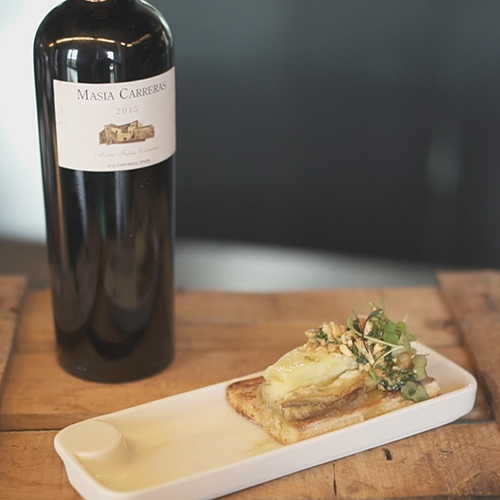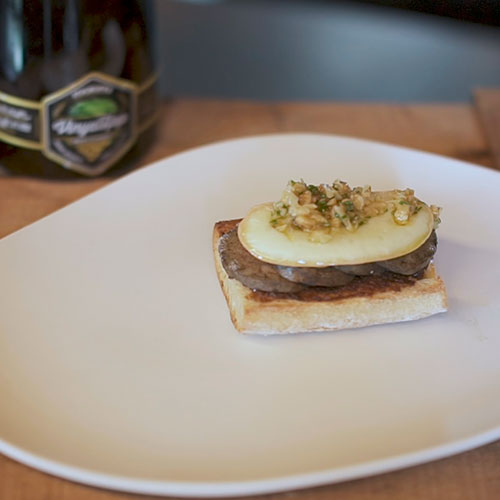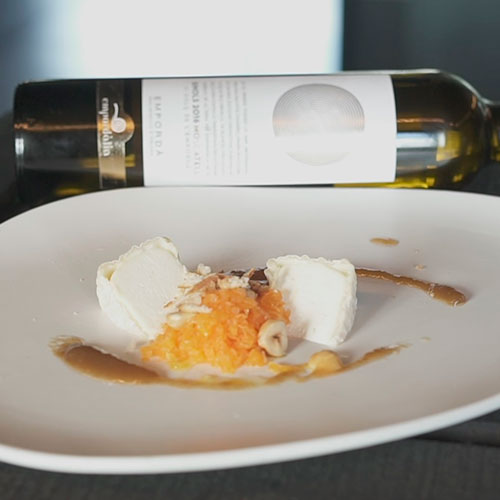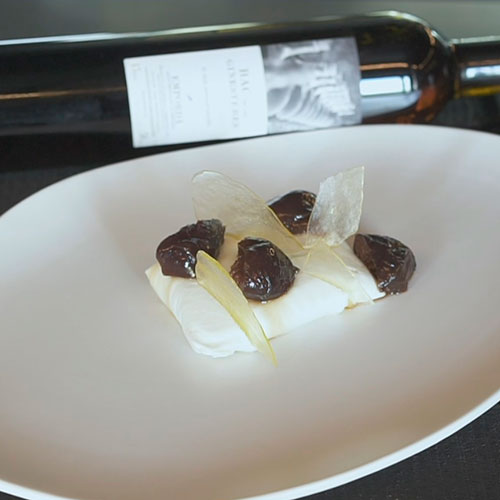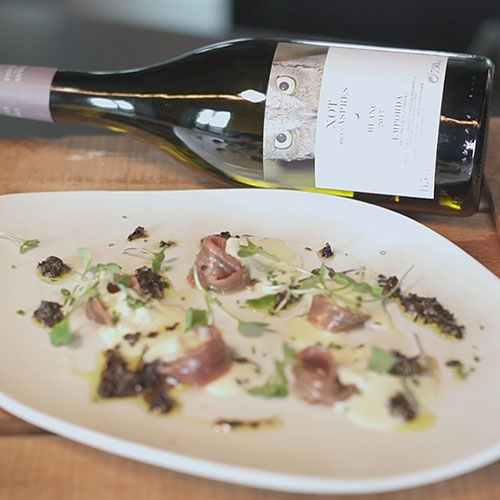
The transhumant herds of cows and sheep from the Empordà plain to the valleys of Ripollès and Cerdanya formed part of the most picturesque landscapes in the counties of northern Girona. The herds of goats were more stable. Stockbreeders produced meat and milk for their own consumption and for nearby markets. That’s why tender cheeses are so predominant, as in the rest of the country. Cottage cheese was made in L’Empordà, La Garrotxa, El Gironès and El Pla de l’Estany, while more curd was made in La Selva: in the interior area of La Selva, it was tender goat cheese.
In the counties of Girona, the great aged cheeses, such as the “serrat”, have to be sought in the Pyrenees, in the coldest and wildest part of the territory. However, from the 1980s, changes came about and the production evolved to become more creative. As disaster loomed over the countryside with rural abandonment and impoverishment, there was a renaissance in the desire to live on the land – in a romantic way at first. Many producers opted to breed livestock, produce milk and process and market it themselves, independently and without intermediaries. An artisan cheese industry also emerged. Some of the cheesemakers are the descendants of shepherds of former times; others arrive with intensive theoretical training. Many already have several years of experience with a range of achievements and awards. Although the best-known Girona dairy product outside the region is curd cheese – in cloth in the Baix Empordà or in a pot in the Alt Empordà – there is no common speciality among all the cheesemakers.
Dairy products with the 2018-2019 Girona Excel·lent seal
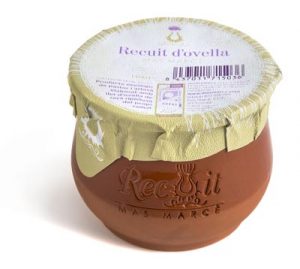
Recuit d’olleta
Mas Marcè, livestock breeders in Siurana, have made a great effort to recover and promote the native Ripoll sheep, as milk producers, using organic farming methods. They have also recovered the cardoon (or artichoke thistle) to curdle the milk and thus revive the traditional technique of making curd in a saucepan.
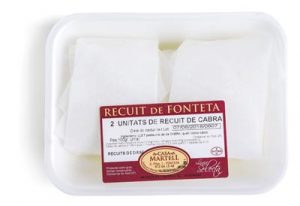
Recuit de drap
If recuit is the Girona dairy product par excellence, Fonteta’s recuit de drap has become a gastronomic icon. The Martell family has been making this product In the municipality of Forallac, at the foot of the Gavarres massif, since 1990. To obtain the famous creamy, soft, delicious texture, milk from different herds of goats is used.
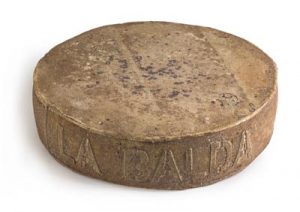
Baldat
This is an unprecedented variety of cheese in our country, the mass being heated and the rind brushed. Made in 20 kilo pieces from raw cow’s milk, it is matured for a minimum of twelve months. To produce it, this cheese maker in Granollers de Rocacorba, in El Gironès, uses raw milk from organically raised cows at Can Garriga de Maià de Montcal, in La Garrotxa.

Saüll
La Xiquella is a craft cheese shop established in 2014 at Mas El Xiquillo, in the Vilallonga district of Vall d’en Bas. Surrounded by experienced farmers with excellent livestock, Oriol Rizo decided to make this delicacy using raw cow’s milk. The mass is heated and hard pressed, the rind is washed and the cheese is matured for at least a year.
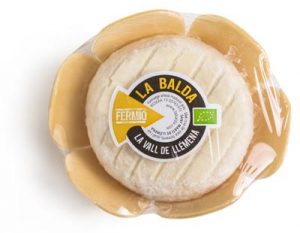
Fermió cheese
Each week, in his small unit, Pablo García makes this soft cheese with white rind using raw milk from organically raised cows at Can Frigola de Borgonyà, in the Pla de l’Estany. The La Balda cheese business was set up in 2012 in the Llémena Valley, at the foot of Rocacorba. Fermió is very creamy when it is made. It tends to become runny and its flavour is strongest when it ripens.

Cofat cheese
This sheep’s cheese is similar to traditional mountain cheeses. Made from raw sheep’s milk by means of enzymatic coagulation, it produces a pressed semi-heated mass with a natural brushed rind and is matured for 6 to 12 months. It is one of the most iconic cheeses from the cheese shop and rural house belonging to Oriol Rizo and Irma Casas.
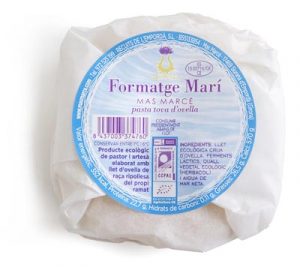
El Marí
Descended from a family of transhumant shepherds from the Pyrenees who settled on the Empordà plain, Manel Marcè, a member of the sixth generation, decided to modernise the business. One of the most successful products has been a matured soft cheese made with raw organic milk from Ripoll sheep and sea water, a tribute to the sea breezes in the windy location of Mas Marcè.

Puigpedrós
This is a soft cheese with washed rind, orange on the outside and aged ivory colour inside, made from raw cow’s milk by Molí de Ger, in La Cerdanya. One of the country’s most representative dairies, it has been making cheeses using raw cow’s milk from its herd of Frisians crossed with a Belgian blue breed since 2007.
The dairy tasting jury.

Laia Pont
Agricultural technical engineer. Specialist in food industries and cheeses
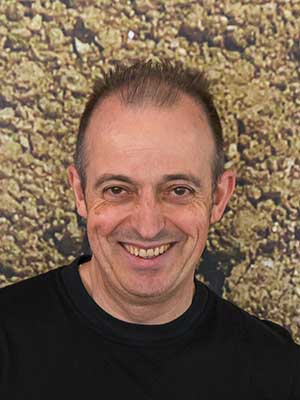
Toni Gerez
Sommelier at the Castillo de Peralada restaurant, Peralada
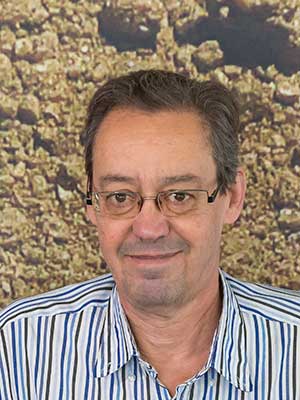
Artur Sagués
Head waiter of the restaurant Cap i Pota, de Figueres
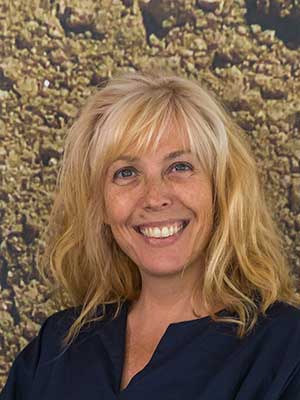
Carme Gasull
Journalist, writer and gastronomic communicator

Marta Garrón
Researcher at IRTA (Institute for Food Research and Technology)
